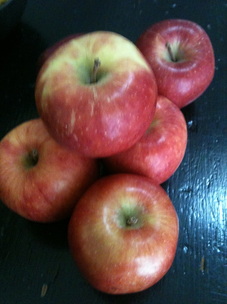
Cappuccino made for me/A. Rittger
When I am truly at one with the universe, having silenced all the spiky “shoulds,” I will be luminescent like an orange, with pits to spit out and juicy with gratitude.
Once I am at one with the universe, I won’t brag about reaching bliss. But should I become one with the universe, I will note it in my gratitude journal or text it to my gratitude buddy, Kate, as one of three gratitudes of the day we have agreed to exchange.
As for daily gratitude, I doubt my data plan allows for the number of text messages I would send to recount all for which I am grateful. Better to journal it and be okay with running out of pages.
Religions and philosophies have long trumpeted gratitude as a manifestation of virtue, and a component of health, wholeness, and wellbeing, while scientists are latecomers to recognizing gratitude’s salubrious effects.
Happiness researcher at UC Davis, Dr. Robert Emmons, calls gratitude the “forgotten factor”. They’ve designed a long-term research project to create and disseminate scientific data on the nature of gratitude, its causes, and its potential consequences for human health and wellbeing. A Harvard study showed 94 percent of depressed people reported feeling less depressed after 15 days of keeping a gratitude journal.
I will leave proving the efficacy of gratitude to the experts and do only what I can do which is, as the poet Rumi says in “The Zero Circle”: “… not be sure of anything besides ourselves, and only that….”
Left to my own devices, take my gratitude journal for Friday, February 24 for example. And then up pops “por ejemplo,” and I feel the big “G” for the ability to remember one of the few expressions I have mastered in another language. The “G” becomes the first letter of Google because I instantly check the spelling on an English-to-Spanish dictionary on my smart phone. Major gratitude for mastering the complexities of my particular portable go-to for almost everything, podcasts, the calendar, music, mail, etc. Which takes me to the earbuds, an alternative to Starbuck’s musical medley. Sometimes it’s okay and sometimes it’s not. I feel gratitude this morning as the voice of Mahalia Jackson pours from the speaker an upbeat gospel tune. The Christian coffee drinker at the end of the counter points it out to me. “Praise the Lord,” she says. “And in Starbucks, of all places.”
If you read me, you know I give all props to this particular spot in the Fillmore Center for the kindness of the young men and women who greet me on mornings I am there and worry when I’m not. This morning Rob does an unusually good job with my usual. I am grateful.
Gratitude to the 1997 Corolla that started this morning although the ignition switch is reluctant to turn over when prodded by the key. I feel grateful for not doubting that eventually the car will start even when the first two turns of the key are click, click nothing.
But worry and dismay cause pain. And I learned in meditation practice and through dharma talks that the stories I tell myself are not reality. Better to just wait until the car starts or doesn’t. Highest gratitude to that lesson. When I need to remind myself of the reality of reality, I just say iiwii (pronounce it the way it looks, like eerie without the “r.”). This shortcut helps me remember that It Is What It Is. I’m grateful for acronyms.
So the car started this morning. And eventually it took me to the drop box at the Main Library. I paused there for a moment, grateful that libraries hold my requested books until I come to get them, and if I’m not on time, send the books to the next avid reader. I am especially grateful for the drop box I access down Grove and then left on to Polk. Due on Friday was “The Great Night” by Dr. Chris Adrian, novelist and hematologist/oncologist at UC Berkeley. I loved both the book and the email reminding me to bring it back or pay a fine. All joy to the reader next on the waiting list.
It’s not yet noon, and the gratitude journal is filling. I will go to Patricia’s Green at Hayes and Octavia, carrying my own artificial sweetener because Royal Grounds coffee is the best and wouldn’t offer artificial anything with their wonderful coffee. I will enjoy a cappuccino made just for me and drink it, watching dogs romp in the park. Gratitude, Gratitude and Shanti, Shanti.*
Once I am at one with the universe, I won’t brag about reaching bliss. But should I become one with the universe, I will note it in my gratitude journal or text it to my gratitude buddy, Kate, as one of three gratitudes of the day we have agreed to exchange.
As for daily gratitude, I doubt my data plan allows for the number of text messages I would send to recount all for which I am grateful. Better to journal it and be okay with running out of pages.
Religions and philosophies have long trumpeted gratitude as a manifestation of virtue, and a component of health, wholeness, and wellbeing, while scientists are latecomers to recognizing gratitude’s salubrious effects.
Happiness researcher at UC Davis, Dr. Robert Emmons, calls gratitude the “forgotten factor”. They’ve designed a long-term research project to create and disseminate scientific data on the nature of gratitude, its causes, and its potential consequences for human health and wellbeing. A Harvard study showed 94 percent of depressed people reported feeling less depressed after 15 days of keeping a gratitude journal.
I will leave proving the efficacy of gratitude to the experts and do only what I can do which is, as the poet Rumi says in “The Zero Circle”: “… not be sure of anything besides ourselves, and only that….”
Left to my own devices, take my gratitude journal for Friday, February 24 for example. And then up pops “por ejemplo,” and I feel the big “G” for the ability to remember one of the few expressions I have mastered in another language. The “G” becomes the first letter of Google because I instantly check the spelling on an English-to-Spanish dictionary on my smart phone. Major gratitude for mastering the complexities of my particular portable go-to for almost everything, podcasts, the calendar, music, mail, etc. Which takes me to the earbuds, an alternative to Starbuck’s musical medley. Sometimes it’s okay and sometimes it’s not. I feel gratitude this morning as the voice of Mahalia Jackson pours from the speaker an upbeat gospel tune. The Christian coffee drinker at the end of the counter points it out to me. “Praise the Lord,” she says. “And in Starbucks, of all places.”
If you read me, you know I give all props to this particular spot in the Fillmore Center for the kindness of the young men and women who greet me on mornings I am there and worry when I’m not. This morning Rob does an unusually good job with my usual. I am grateful.
Gratitude to the 1997 Corolla that started this morning although the ignition switch is reluctant to turn over when prodded by the key. I feel grateful for not doubting that eventually the car will start even when the first two turns of the key are click, click nothing.
But worry and dismay cause pain. And I learned in meditation practice and through dharma talks that the stories I tell myself are not reality. Better to just wait until the car starts or doesn’t. Highest gratitude to that lesson. When I need to remind myself of the reality of reality, I just say iiwii (pronounce it the way it looks, like eerie without the “r.”). This shortcut helps me remember that It Is What It Is. I’m grateful for acronyms.
So the car started this morning. And eventually it took me to the drop box at the Main Library. I paused there for a moment, grateful that libraries hold my requested books until I come to get them, and if I’m not on time, send the books to the next avid reader. I am especially grateful for the drop box I access down Grove and then left on to Polk. Due on Friday was “The Great Night” by Dr. Chris Adrian, novelist and hematologist/oncologist at UC Berkeley. I loved both the book and the email reminding me to bring it back or pay a fine. All joy to the reader next on the waiting list.
It’s not yet noon, and the gratitude journal is filling. I will go to Patricia’s Green at Hayes and Octavia, carrying my own artificial sweetener because Royal Grounds coffee is the best and wouldn’t offer artificial anything with their wonderful coffee. I will enjoy a cappuccino made just for me and drink it, watching dogs romp in the park. Gratitude, Gratitude and Shanti, Shanti.*



 RSS Feed
RSS Feed